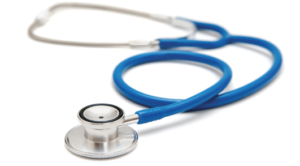Three districts record meningitis cases
 Three districts in the Upper West Region recorded meningitis cases last year.
Three districts in the Upper West Region recorded meningitis cases last year.
The Nadowli-kaleo, Jirapa and Nandom Districts by virtue of the geographical location in the African Meningitis belt, experienced a surge in the number of meningitis cases during the dry harmattan season in 2016.
Dr. Winfred Ofosu, the Upper West Regional Director of Health Services, announced this at the 2016 annual health performance review meeting in Wa.
The Regional Health Director, who did not give figures of cases recorded, however said that with the timely support from development partners, national and international community, the region received ACW135 polysaccharide vaccine to conduct mass vaccination in those districts to avert further cases and deaths from meningitis.
He said the Region also maintained high surveillance on other disease threats such as cholera, yellow fever, measles, polio, dengue fever and Ebola among others.
There were also a lot of efforts to control malaria, tuberculosis and HIV/AIDS, while rabies remained a great threat to life in the Region due to frequent rabid dog bites.
Dr Ofosu said the Regional Health Directorate was working closely with the Veterinary Service to help reduce the incidence of rabies in the Region.
He said immunisation remained the best way to control and prevent diseases with the Region achieving a modest increase in immunisation coverage from 83.1 per cent to 85.6 per cent but fell short of the 90 per cent target.
Dr Ofosu expressed worries about drug related mental health conditions in the Region and appealed to stakeholders in the health sector to help address it.
Dr Ebenezer Appiah Denkyira, Director General of Ghana Health Service in a speech read on his behalf, said the 2016 review was based on the 2014 – 2017 Health Sector Medium Term Development Plan and the 2016 Ghana Health Service Programme of work.
He said in the pursuit of “our vision of a healthy population that has universal access to quality health services”, the Service had outlined Ghana Health Service priority areas for 2017 for all to focus on.
The Service top priority is to scale up Community Based Health Planning and Services, ensuring continuum of care, strengthening the sub-district health service delivery, organising family meetings of district health facilities and specialist clinical supervision, he said.
“In addition, integrating service delivery, ensuring commodity security and supply chain, improving data quality and adequate preparedness and response to public health and hospital emergencies.”
Dr. Denkyira also called for prudent management of financial resources, development of human resource and guarantee good governance that would drive all the priorities, and also fall in line with accountability structures.
Source: GNA
